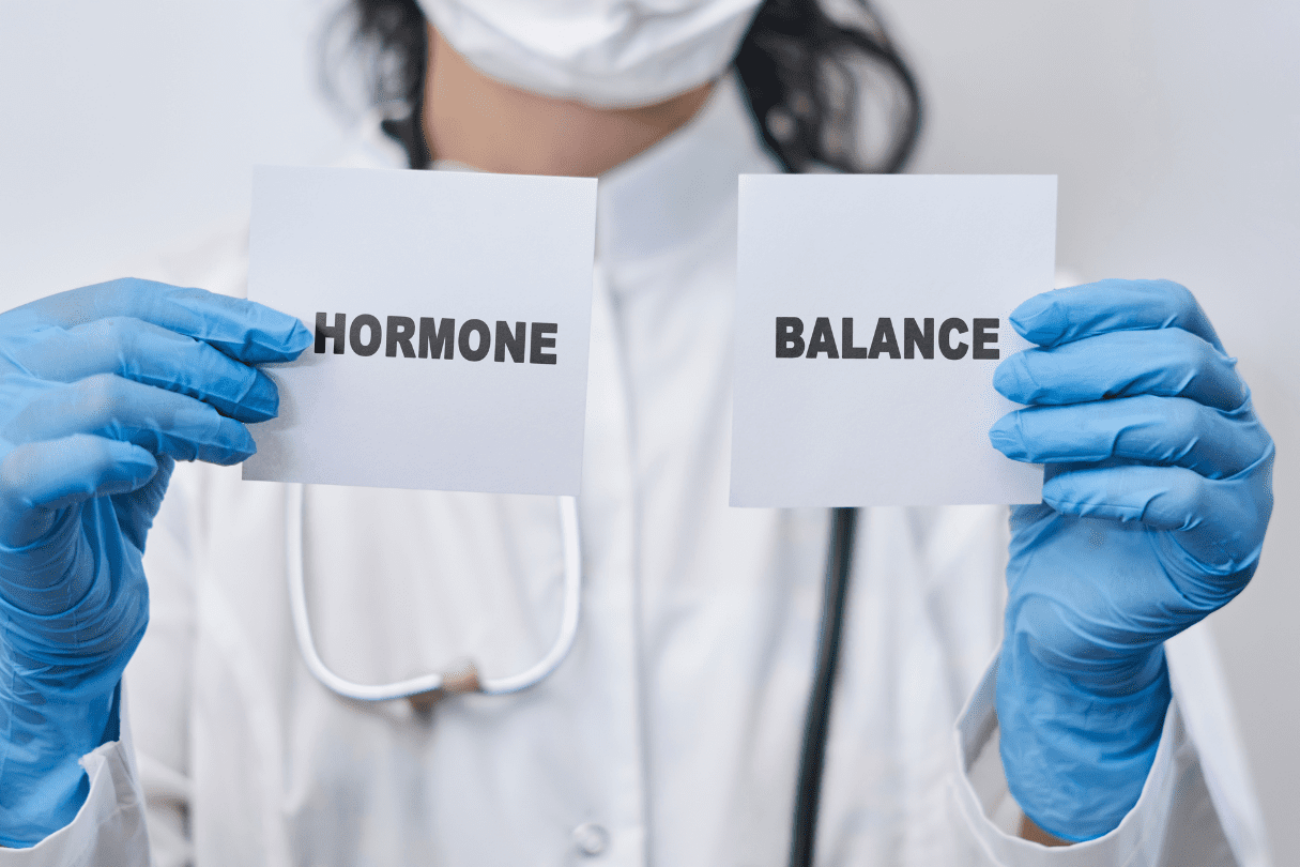In this month’s blog, we’re joined by Dr. Angela DeRosa, DO, MBA, CPE, from the Hormonal Health Insititute. Dr. DeRosa is incredibly passionate about empowering women and men to live full, balanced lives by empowering clinicians and patients with truths about hormonal health, integrative health, and wellness. She shares valuable insights into the realm of Hormone Replacement (HRT).
Between the hot flashes, mood swings, and sleepless nights, hormones can be your best friend — or your worst enemy.
You see, hormones are a delicate balancing act. They regulate many of the functions in your body and control how you feel, look, sleep, and think. When hormones get out of balance, they can have a negative effect on your health. Thankfully, there are ways to get your hormones back on track, and one of them is hormone replacement therapy (HRT).
Now, you may be thinking, “This sounds all fine and good, but what exactly is HRT, and how can it help me?” Well, you’ve come to the right place because we’re going to answer 10 of the most frequently asked questions about HRT.
1. What is HRT?
Did you know hormones are involved in most of your body’s essential functions? A few of these functions include:
- Appetite
- Glucose metabolism and weight management
- Brain function
- Digestion
- Immune function
- Libido
- Mood
- Sleep
When your hormones are out of balance, they can wreak havoc on your body and lead to a variety of symptoms you are probably all too familiar with for women going through perimenopause or menopause. Hormonal imbalances that can affect both men and women include:
- Mood swings, depression, or anxiety
- Fatigue
- Low libido
- Weight gain
- Difficulty concentrating
In women, it can also cause, hot flashes, night sweats, and vaginal dryness which can lead to painful intercourse, urinary tract infections, and hair loss. In men, it can also lead to erectile dysfunction, lower urinary tract syndromes such as urinary frequency, and increased risk for prostate cancer. If you’re looking for relief, your doctor may prescribe HRT to help regulate the hormones that are out of balance.
2. What are the different types of HRT?
Estrogen, progesterone, and testosterone are the three main hormones that can be replaced.
- Estrogen is responsible for a woman’s reproductive and sexual development.
- Progesterone plays an important role in a women’s menstrual cycle and pregnancy.
- Testosterone contributes to bone density, cognition, mood, weight management, muscle strength, and sex drive in both men and women.
HRT can be administered in the following forms:
Talk to your doctor to determine which type of HRT might be right for you. Now let’s get to the third most frequently asked question.
3. How long do I need to take hormones, and when will I notice an improvement in my symptoms?
The best way to determine how long you need to stay on hormones is to — wait for it — talk to your doctor (you probably already knew we were going to stay that). There isn’t an exact answer because everyone’s response varies, depending on your age, and health history.
4. Can I stop taking hormones once my symptoms improve?
First things first: You should not attempt to stop HRT without consulting with your doctor because stopping suddenly increases the risk of menopausal symptoms returning. The other thing to keep in mind is that hormones are not just about improving symptoms, but also preventing chronic illness. For example, estradiol help blood vessel health which affects cardiovascular risk. Testosterone affects glucose metabolism which can affect your risk for diabetes and cardiovascular risk. Both hormones affect bone health and lack of them can lead to osteoporosis and fractures.
5. Will taking hormones interfere with other medications I’m taking?
An increase in estrogen in your body may interfere with other prescription medications you’re taking. If you are concerned about any drug interactions, talk to your doctor or pharmacist for more information.
6. What’s bioidentical hormone replacement therapy (BHRT)?
BHRT uses bioidentical hormones made from plant estrogens with the same molecular structure as hormones naturally occurring in the body. In recent years, more women have been choosing compounded BHRT to rebalance their hormones. With compounding, pharmacies can prepare a prescription specifically tailored to address your specific needs — based on a script from your doctor.
7. What hormones are inside BHRT medication?
The most common hormones found within bioidentical hormone medications include:
- Anastrozole
- DHEA (Dehydroepiandrosterone)
- Estradiol (E2)
- Estriol (E3)
- Oxytocin
- Pregnenolone acetate
- Progesterone
- Testosterone
8. Is HRT safe?
One common misconception about HRT that the media has repeated over the years is that it can cause breast cancer. The good news is that studies suggest it does not affect breast cancer risk. However, if you have a family history or genetic predisposition to breast cancer, hormones may play a factor in your risk, so consult with your doctor.
Don’t forget hormones replacement therapy is not a one size fits all kind of treatment! If you have questions, speak with your doctor and get the answers you need from an expert!
9. Is HRT covered by insurance?
That depends, as insurance differs on a case-to-case basis, it’s best to check with your medical provider and/or insurance company before undergoing treatment.
We hope our questions and answers have been informative and answered many unknowns you might have had about HRT. If you’re feeling the effects of hormonal imbalance, don’t hesitate to reach out for help. Your doctor can provide guidance on which type of HRT medication might be right for you and your lifestyle. Hormonal balance is within your reach, especially when you’re proactive about your health and wellness.
Inhale. We've got this. Exhale.
Understanding healthcare; with us, it’s personal.


